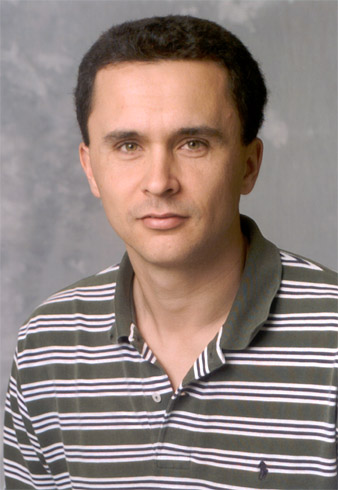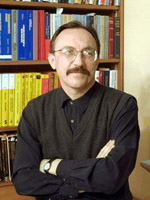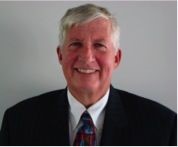2010 Spring Meeting
April 29th - 8:00 AM to 4:00 PM
|
8:00 – 8:30 a.m. |
Continental Breakfast - Networking |
|---|---|
|
8:30 – 8:45 a.m. |
Welcome & Opening Remarks - Dr. John Sullivan and Richard Couch |
|
8:45 – 9:30 a.m. |
Implementing ontology-based Information Sharing to Product Lifecycle Management - Dr. John Springer |
|
9:30 – 10:15 a.m. |
Ramani Delivery of Lightweight Formats to Handheld Devices & PLM Certificate Program Update - Dr. Nathan Hartman |
|
10:15 – 10:30 a.m. |
Break and Transit to ME |
| 10:30 - 11:30 a.m. | ME444 Demos |
|
11:30 - 12:15 a.m. |
Cutting Edge Visualization for PLM - Dr. Voicu Popescu |
|
12:15 - 12:30 p.m. |
Lunch |
|
12:30 - 1:00 p.m. |
Lunch Presentation - Rube Goldberg at Purdue, Keegan Klauke |
| 1:00 - 1:45 p.m. | PLM Cross Functional Certification and Training - Dr. Darrel Sandell |
| 1:45 - 2:15 p.m. | Energy and Sustainability Models in PLM - Dr. Karthik Ramani |
| 2:15 - 2:30 p.m. | Science of Information - Dr. Wojtek Szpankowski |
| 2:30 - 2:45 p.m. |
Break |
| 2:45 - 3:30 p.m. | PLM and Systems Engineering - Dr. Michael Grieves |
|
3:30 - 4:00 p.m. |
Open Discussion and Wrap up |
Speaker Biographies:
Dr. John Sullivan
 John Sullivan is a Professor in the School of Aeronautics and Astronautics. He received a BS in 1967 from the University of Rochester and a M.S. (1969) and Ph.D. (1973) in Aeronautical Engineering from the Massachusetts Institute of Technology. After graduation, he co-founded a small high technology company in California that developed laser instrumentation. In 1975 he sold the company and joined the faculty of Purdue University.
John Sullivan is a Professor in the School of Aeronautics and Astronautics. He received a BS in 1967 from the University of Rochester and a M.S. (1969) and Ph.D. (1973) in Aeronautical Engineering from the Massachusetts Institute of Technology. After graduation, he co-founded a small high technology company in California that developed laser instrumentation. In 1975 he sold the company and joined the faculty of Purdue University.
Sullivan has taught a wide variety of courses and started several new courses in fluid mechanics, aerodynamics measurement and design. Courses providing students a design/build/test experience are one of his passions including mentoring the AIAA Design/Build/Fly team. He directs graduate student research in the general area of experimental aerodynamics/fluid mechanics. He is internationally known for his work in molecular sensors that include pressure and temperature paint. In 2004, Springer-Verlag published his book Pressure and Temperature Sensitive Paint co-authored with his student Dr. Tianshu Liu. The book is now available in Chinese. In addition to research papers, PhD and MS students, he has taught short courses for the Von Karman Institute and AIAA. Many of his students, in both academia and industry, are well known in the community and continue to expand the field of molecular sensors.
His administrative experiences at Purdue University include, Director of the Center for Advanced Manufacturing (2004-2012), Co-Director of the Product Lifecycle Management Center of Excellence, Head of the School of Aeronautics and Astronautics (1993-1998), Associate Head (1991-1993) and Director of the Aerospace Sciences Laboratory (1983-1995). He spent a year sabbatical at the Office of Naval Research in 1989-90 and a year at the Boeing Company in 2002. From July 2006 to September 2009, he served was a special government employee, as a member of NASA advisory Council reporting to the NASA Administrator. Sullivan was on a two year assignment to NASA Headquarters as a Senior Technical Advisor from September 2010 to August 2012. He is a Fellow of AIAA.
John Springer
 John Springer is an Associate Professor in the Department of Computer and Information Technology (CIT) at Purdue University. Dr. Springer is a primary investigator on the Information Security Research and Education (INSuRE) project; INSuRE is a network of National Centers of Academic Excellence in Cyber Defense Research (CAE-Rs) universities that cooperatively engages students in addressing cybersecurity research problems proposed by governmental organizations and laboratories. His main research area is Data Engineering with recent emphasis on data-intensive applications in Cybersecurity.
John Springer is an Associate Professor in the Department of Computer and Information Technology (CIT) at Purdue University. Dr. Springer is a primary investigator on the Information Security Research and Education (INSuRE) project; INSuRE is a network of National Centers of Academic Excellence in Cyber Defense Research (CAE-Rs) universities that cooperatively engages students in addressing cybersecurity research problems proposed by governmental organizations and laboratories. His main research area is Data Engineering with recent emphasis on data-intensive applications in Cybersecurity.
Voicu Popescu
 Professor Popescu's research interests span the areas of computer graphics, visualization, and computer vision. His current research projects develop novel camera models for efficient and effective rendering of complex visual effects, a system for rapid photorealistic 3D modeling of large-scale real-world environments, a system that aims to make distance education an integral but unobtrusive part of on-campus education, and a method for high-fidelity general-purpose-visualization of large-scale computer simulations.
Professor Popescu's research interests span the areas of computer graphics, visualization, and computer vision. His current research projects develop novel camera models for efficient and effective rendering of complex visual effects, a system for rapid photorealistic 3D modeling of large-scale real-world environments, a system that aims to make distance education an integral but unobtrusive part of on-campus education, and a method for high-fidelity general-purpose-visualization of large-scale computer simulations.
Darrel Sandall
Darrel L. Sandall is an Assistant Professor for Organizational Leadership & Supervision at Purdue University. His discovery, learning, and engagement expertise and interests focus on how technology impacts innovation in the workplace. Specifically, Dr. Sandall researches how technology innovations can be applied to process improvement and Human Resource Development efforts to increase efficiency, effectiveness, and overall performance. Before joining Purdue, Darrel was the Chief Skills Officer for SkillsNET Corporation, one of the top 500 fastest growing companies as recognized by Inc Magazine in 2006. As CSO, Darrel managed the research, development and implementation of the science surrounding SkillObject development efforts and was involved with developing and implementing technology-based solutions for clients, including numerous multi-million dollar FFP, CPFF and T&M contracts for the U.S. Department of Defense. Darrel also directed the development and management of SkillsNET’s intellectual property portfolio, including co-inventing systems and methods covered by 13 patent applications. In his career, he has worked over 10 years in the field of Industrial-Organizational Psychology and managed numerous national and global efforts that focused on optimizing the workforce for the client organizations in the commercial sector, government sector, and non-profit sector. He has worked with clients such as the U.S. Navy, U.S. Naval Reserves, U.S. Department of Defense, the U.S. Coast Guard, the U.S. Department of Agriculture, the Federal Aviation Administration, the General Services Administration, the Canadian Combined Forces, the European Union, Cisco Systems, M-i SWACO, IEEE, Alliant Techsystems (ATK), CitiFinancial Mortgage North America, Plateau Systems, CSRG, First Hawaiian Bank, the National Shipbuilding Research Program, the American Job Link Alliance, and numerous state governments.
Karthik Ramani
 Karthik Ramani is a Professor in the School of Mechanical Engineering at Purdue University. He earned his B.Tech from the Indian Institute of Technology, Madras, in 1985, an MS from Ohio State University, in 1987, and a Ph.D. from Stanford University in 1991, all in Mechanical Engineering. Among his many awards he received the National Science Foundation (NSF) Research Initiation and Career Award, the Ralph Teetor Educational Award from the SAE, and the Outstanding Young Manufacturing Engineer Award from SME. In 2006, he won the innovation of the year award from the State of Indiana. He serves on the editorial board of Elsevier Journal of Computer-Aided Design and ASME Journal of Mechanical Design. In 2008, he was a visiting Professor at Stanford University (computer sciences) as well as a research fellow at PARC (formerly Xerox PARC). He also serves on the Engineering Advisory sub-committee for the NSF IIP (Industrial Innovation and Partnerships). In 2006 and 2007, he won the Most Cited Journal Paper award from Computer-Aided Design and the Research Excellence award in the College of Engineering at Purdue University.
Karthik Ramani is a Professor in the School of Mechanical Engineering at Purdue University. He earned his B.Tech from the Indian Institute of Technology, Madras, in 1985, an MS from Ohio State University, in 1987, and a Ph.D. from Stanford University in 1991, all in Mechanical Engineering. Among his many awards he received the National Science Foundation (NSF) Research Initiation and Career Award, the Ralph Teetor Educational Award from the SAE, and the Outstanding Young Manufacturing Engineer Award from SME. In 2006, he won the innovation of the year award from the State of Indiana. He serves on the editorial board of Elsevier Journal of Computer-Aided Design and ASME Journal of Mechanical Design. In 2008, he was a visiting Professor at Stanford University (computer sciences) as well as a research fellow at PARC (formerly Xerox PARC). He also serves on the Engineering Advisory sub-committee for the NSF IIP (Industrial Innovation and Partnerships). In 2006 and 2007, he won the Most Cited Journal Paper award from Computer-Aided Design and the Research Excellence award in the College of Engineering at Purdue University.
Ramani was the co-founder of the world’s first commercial shape-based search engine (VizSeek/Imaginestics). In 2009, he won the Outstanding Commercialization award from Purdue University. He has won several best paper awards from ASME and in 2014 the Outstanding Research Excellence Award from ASME Computers and Information Sciences in Engineering Division. NSF recently invited him for a distinguished lecture in cyber-learning. His recent papers have been published in ACM UIST, IEEE CVPR, ACM SIGCHI, ACM IDC, ASME JMD and ACM SPM.
Dr. Wojtek Szpankowski
 Wojciech Szpankowski is Saul Rosen Professor of Computer Science and Electrical and Computer Engineering at Purdue University. He received his M.S. and Ph.D. degrees in Electrical and Computer Engineering from Gdansk University of Technology. He held several Visiting Professor/Scholar positions, including McGill University, Canada, Stanford, Hewlett-Packard Labs, INRIA, Universite de Versailles, Universite de Bourgone, Dijon, Universite de Marne-la-Vallee, Ecole Polytechnique, France, University of Canterbury, New Zealand, Johann Wolfgang Goethe-University Frankfurt, Paris 13, France, and the Newton Institute, Cambridge, UK. He is a Fellow of IEEE, the Erskine Fellow, and 2010 recipient of the Humboldt Research Award. His research interests cover analysis of algorithms, information theory, bioinformatics, analytic combinatorics, and stability problems of distributed systems. He published the book "Average Case Analysis of Algorithms on Sequences", John Wiley & Sons, 2001. Szpankowski has been a guest editor and an editor of several technical journals, including Theoretical Computer Science, ACM Transaction on Algorithms, Algorithmica, IEEE Transactions on Information Theory, and Combinatorics, Probability, and Computing. In 2008 he launched the interdisciplinary Institute for Science of Information whose mission is to extend classical information theory to modern settings, including knowledge discovery and information extraction from massive datasets. He is the Director of the newly established NSF Science and Technology Center for Science of Information.
Wojciech Szpankowski is Saul Rosen Professor of Computer Science and Electrical and Computer Engineering at Purdue University. He received his M.S. and Ph.D. degrees in Electrical and Computer Engineering from Gdansk University of Technology. He held several Visiting Professor/Scholar positions, including McGill University, Canada, Stanford, Hewlett-Packard Labs, INRIA, Universite de Versailles, Universite de Bourgone, Dijon, Universite de Marne-la-Vallee, Ecole Polytechnique, France, University of Canterbury, New Zealand, Johann Wolfgang Goethe-University Frankfurt, Paris 13, France, and the Newton Institute, Cambridge, UK. He is a Fellow of IEEE, the Erskine Fellow, and 2010 recipient of the Humboldt Research Award. His research interests cover analysis of algorithms, information theory, bioinformatics, analytic combinatorics, and stability problems of distributed systems. He published the book "Average Case Analysis of Algorithms on Sequences", John Wiley & Sons, 2001. Szpankowski has been a guest editor and an editor of several technical journals, including Theoretical Computer Science, ACM Transaction on Algorithms, Algorithmica, IEEE Transactions on Information Theory, and Combinatorics, Probability, and Computing. In 2008 he launched the interdisciplinary Institute for Science of Information whose mission is to extend classical information theory to modern settings, including knowledge discovery and information extraction from massive datasets. He is the Director of the newly established NSF Science and Technology Center for Science of Information.
Dr. Michael Grieves
 Dr. Michael Grieves splits his time between the business and academic worlds. He is the author of the seminal books on Product Lifecycle Management (PLM): “Product Lifecycle Management: Driving the Next Generation of Lean Thinking” (McGraw-Hill, 2006) and Virtually Perfect: Driving Innovative and Lean Products through Product Lifecycle Management” (SCP, 2010).
Dr. Michael Grieves splits his time between the business and academic worlds. He is the author of the seminal books on Product Lifecycle Management (PLM): “Product Lifecycle Management: Driving the Next Generation of Lean Thinking” (McGraw-Hill, 2006) and Virtually Perfect: Driving Innovative and Lean Products through Product Lifecycle Management” (SCP, 2010).
Dr. Grieves is an acknowledge world expert in PLM and lectures world-wide on engineering, manufacturing, and PLM in both industry and academia conferences. In addition to his books, Dr. Grieves has numerous publications and articles. Dr. Grieves consults with a number of leading international manufacturers and governmental organizations such as NASA.
Dr. Grieves has been a Co-Director of the Purdue PLM Center of Excellence, where he still participates, and served as a Visiting Professor at the Purdue University College of Technology. Dr. Grieves has also been affiliated with the Eller School of Business MIS Department at the University of Arizona, where he was designated Director – Industry Research for the MIS Department and Director, Information Technology Industry Research Center (ITIRC) at the University of Arizona. He served on the advisory board for the MIS department.
Dr. Grieves is Chairman Emeritus of Oakland University’s School of Business Board of Visitors. He has taught in the United States, China, and Europe at the university senior undergraduate, and graduate school levels and has authored and taught executive education courses. Dr Grieves is a Professor at CIMBA University, Asolo, Italy with an appointment at the University of Iowa. He also has an appointment as Research Professor at the Florida Institute of Technology.
Dr. Grieves is a founder and Chairman of Interactive Frontiers, Inc. the world leader in golf and sport instructional software, Dr. Grieves has over thirty years experience in the computer and data communications industry. He has been a senior executive at both Fortune 1000 companies and entrepreneurial organizations during his career. He founded and took public a $100 million systems integration company and subsequently served as its audit and compensation committee chair. Dr. Grieves has substantial board experience, including serving on the board of public companies in both China and Japan.
Dr. Grieves has a BSCE from Michigan State University and an MBA from Oakland University. He received his doctorate from the Case Western Reserve University Weatherhead School of Management.

